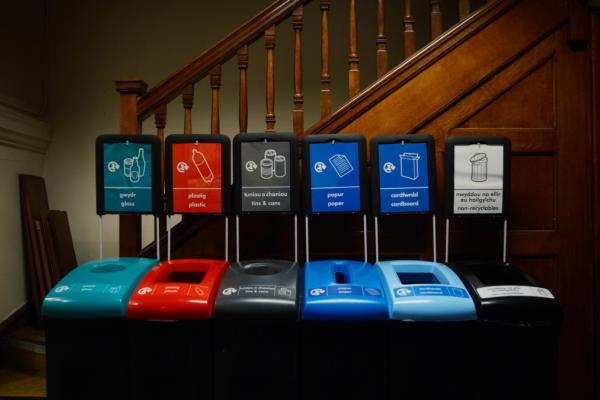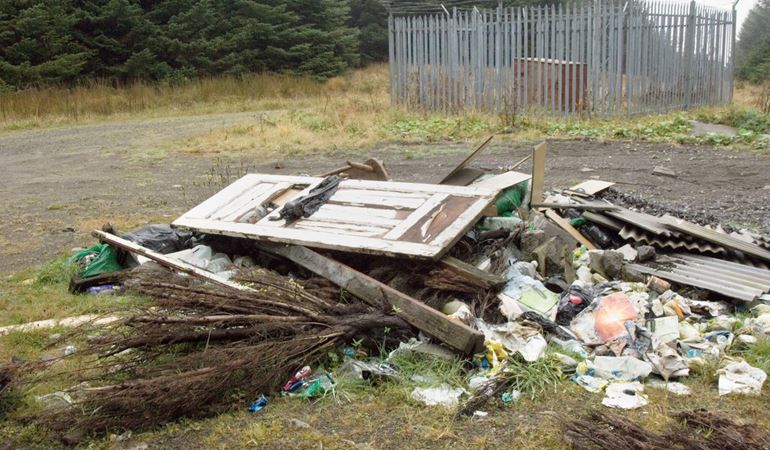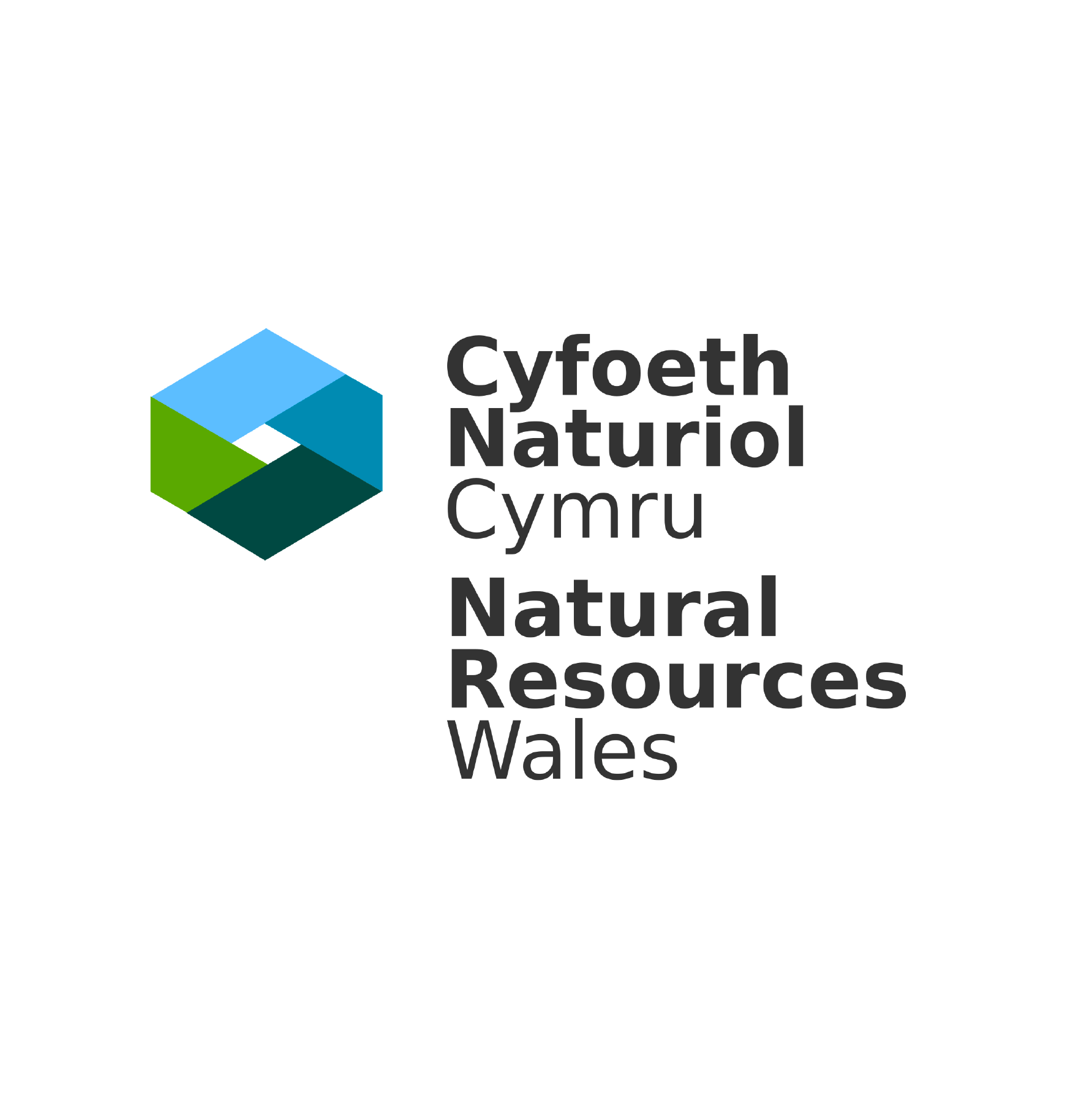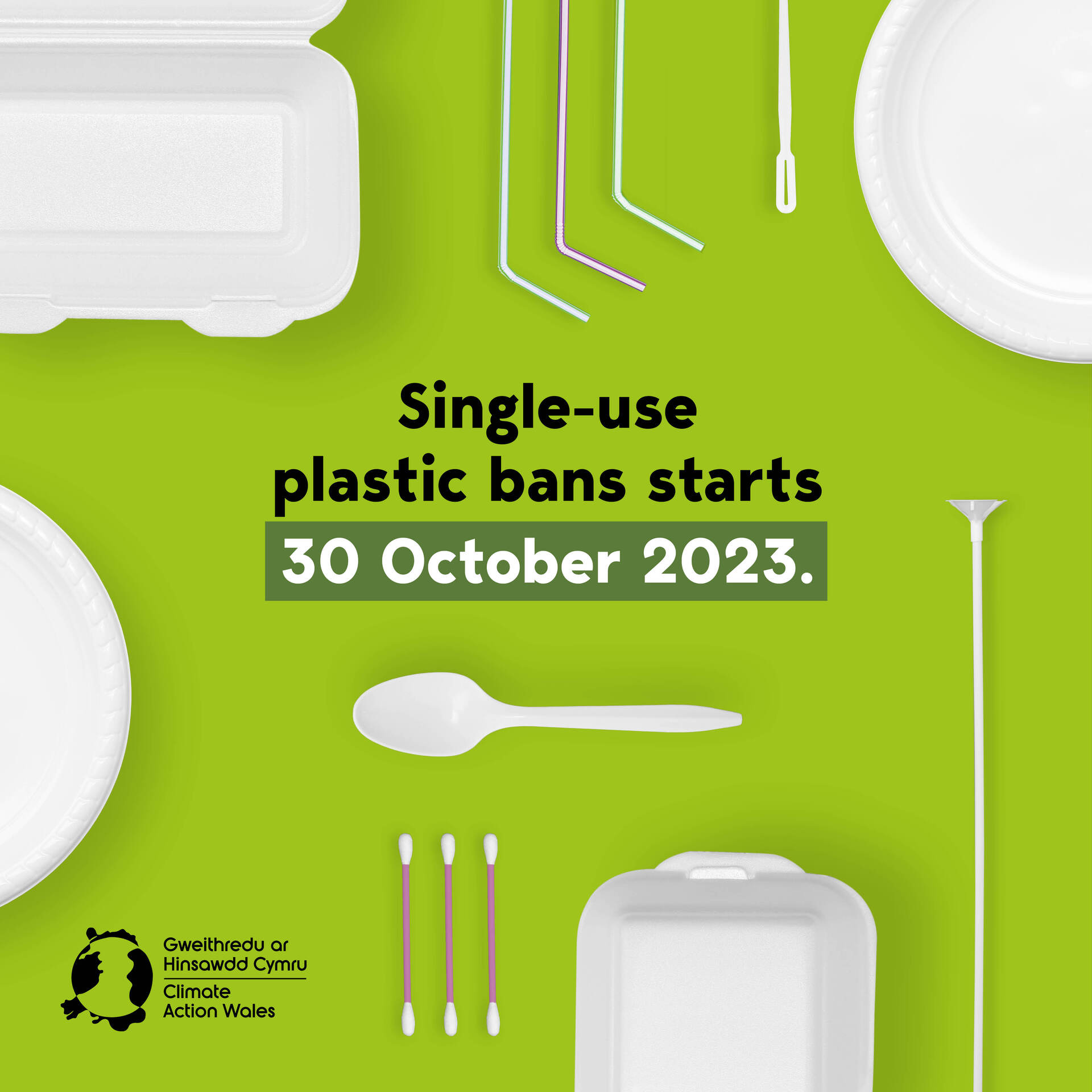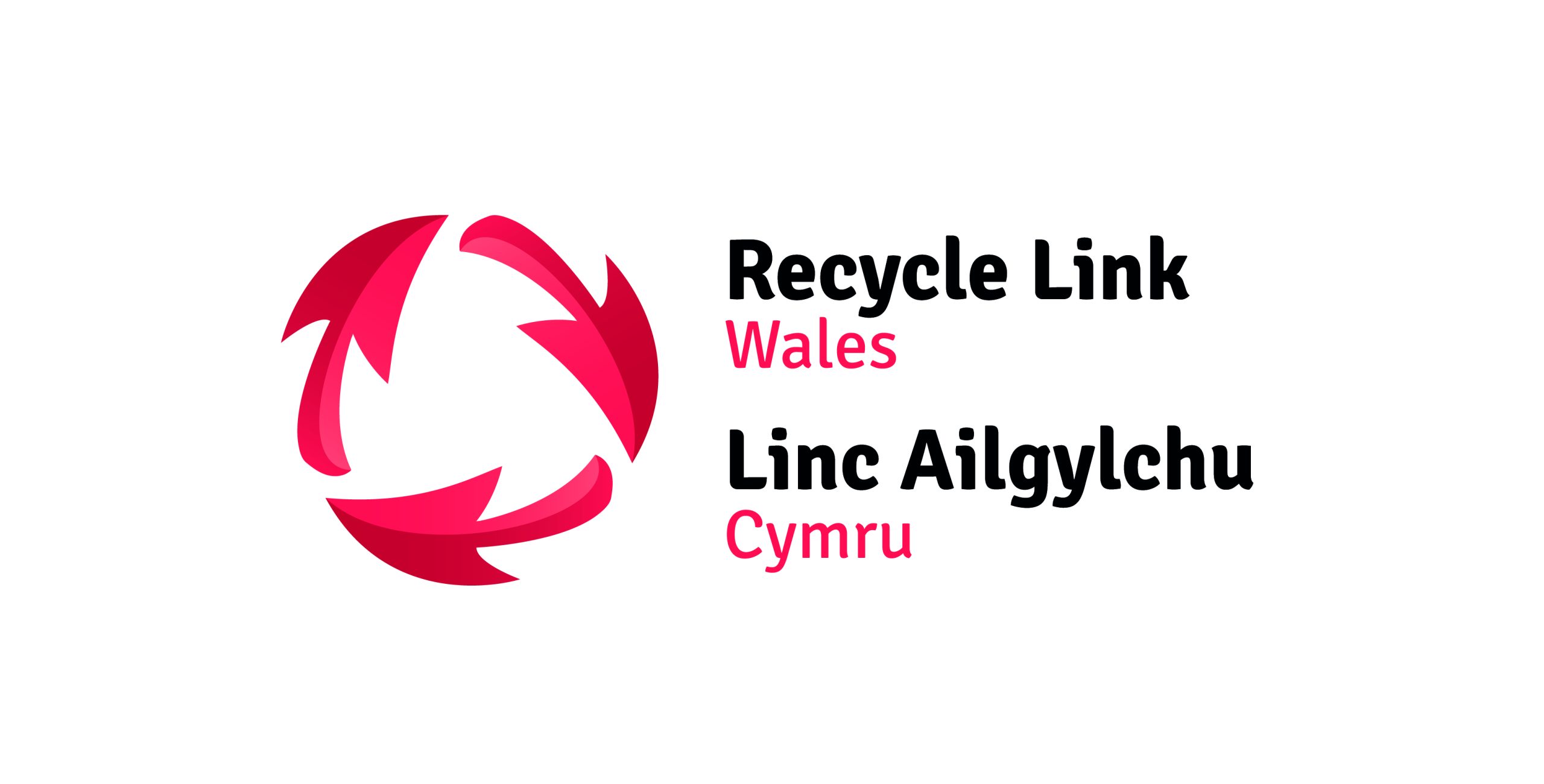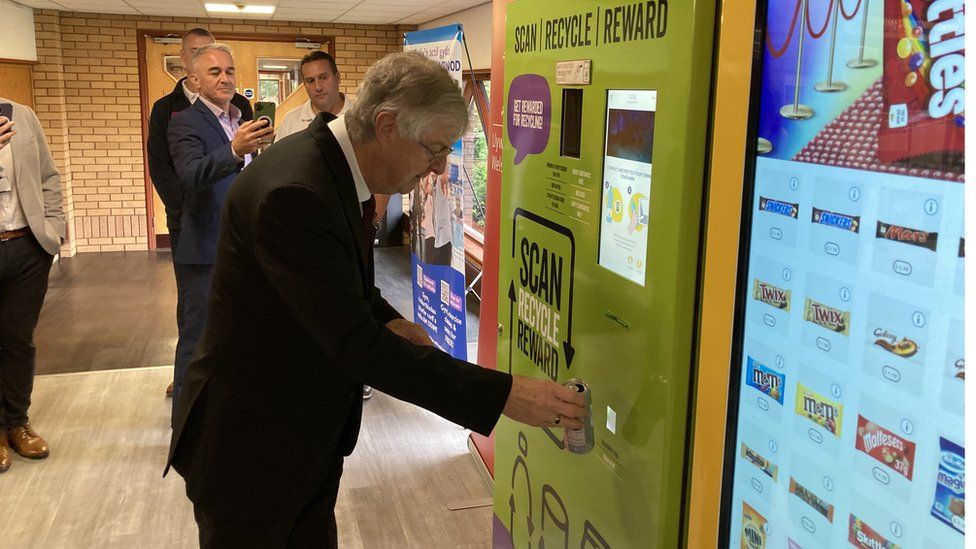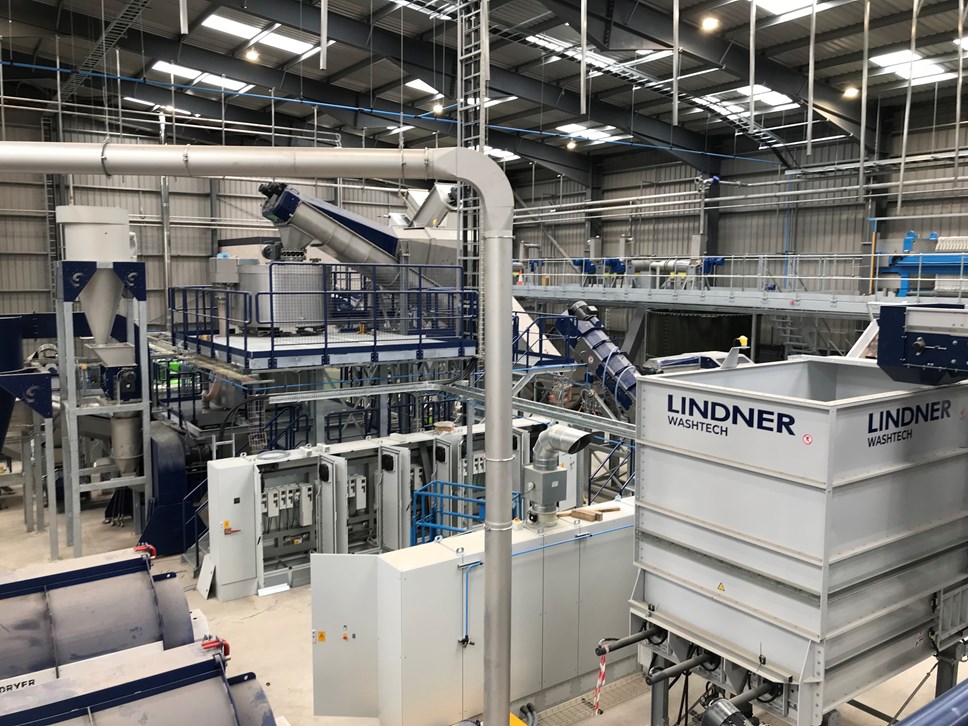New Workplace Regulations for Wales
From today, April 6th 2024, it will become law for all businesses, charities, and public sector organisations to sort their waste for recycling.
The changes will increase recycling and reduce the amount of waste sent for incineration and to landfill.
The Workplace Recycling Regulations will require all business, public and third sector workplaces to separate key recyclable materials in the way that householders already do across most of Wales.
The following materials will need to be separated for collection, and collected separately:
- Food
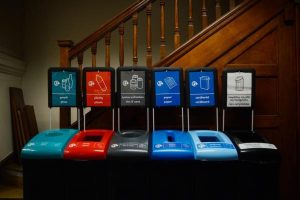
- Paper and card
- Glass
- Metal, plastic and cartons
- Unsold textiles
- Unsold small waste electrical and electronic equipment
Putting the recycling in different bins will improve its quality, making it more likely the materials can be used by Welsh businesses instead of being exported.
There will also be a ban on:
- Sending food waste to sewer (any amount)
- Separately collected waste going to incineration and landfill
- All wood waste going to landfill
Cabinet Secretary for Climate Change, Huw Irranca-Davies said:
Wales is already the best in the UK for domestic recycling and third best in the world.
We now want to improve the quality and quantity of recycling from workplaces. This is an important step towards reaching zero waste, reducing our carbon emissions and tackling the climate emergency.
We want to keep materials in use for as long as possible. With the costs of materials rising, keeping high quality materials in use will help our economy and support our supply chains.
It will also improve the quality and quantity of recyclable materials collected from workplaces, which will in turn capture important materials to be fed back into the Welsh economy.
Illegal waste carriers to be targeted
A joint operation is to be held between agencies to clamp down on illegal waste carriers and rogue traders in Denbighshire.
Natural Resources Wales (NRW) will join forces with colleagues from Denbighshire County Council, North Wales Police and Vehicle and Operator Services Agency (VOSA) for a day of action in Rhyl. The partnership operation will target waste carriers who are operating without a permit or licence and criminals who use the roads to commit waste offences.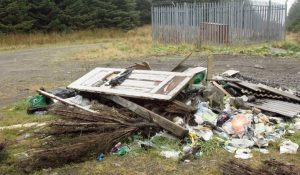
Any suspect vehicles will be stopped with the aim of finding out if there is any waste on board their vehicle and where it is due to end up. If any waste offences are found to have been committed, NRW Enforcement Officers will then deal with them accordingly.
Fly-tipping Action Wales will also be at The White Rose shopping centre on Tuesday 30 January to speak with residents about our waste duty of care responsibilities as a community. There will also be a litter picking session and local alleyways will be tidied with support from with support from the Community Payback Team supervised by the Probation Service.
Heledd Wynne-Evans, NRW Fly-tipping Action Wales Officer, said:
“Clamping down and taking action against illegal waste carriers and offenders who can cause significant damage to our natural environment is part of our commitment to protect people and nature in Wales.
“Our partners are currently having to deal with around 120 fly tips a month from the Westend of Rhyl with an annual average cost of over £100,000. This planned day of action offers a vital opportunity to clamp down on illegal waste offenders in the area.
“We would also like to take this opportunity to call on anyone who suspects illegal waste activity in their area to report it via NRW’s incident hotline on 0300 065 3000. If you see an incident of fly-tipping in your local area, please report it to your local authority.”
Cllr Barry Mellor, Denbighshire County Council’s Lead Member for Environment & Transport, said:
“Fly-tipping is a form of anti-social of behaviour and a criminal offence. It’s a blight on the landscape and has a negative impact on the quality of life for residents.
“The vast majority of people are law-abiding citizens who dispose of their waste responsibly through our council waste collections or by taking items to our recycling centres. We have adopted a permanent booking system at all of our recycling centres because we found that it makes them more efficient to operate and more convenient for the public as it reduces queuing at peak times.
“There is no excuse for dumping rubbish anywhere and the Council will not tolerate this behaviour. If anyone has information about offenders they should get in touch and we will deal with those people through the appropriate channels.”
NRW introduces new charge banding tool
Natural Resources Wales’ new charge banding tool which will replace the existing OPRA system for calculating Installation permit application charges will go live today on 22 January 2024.
Between October 2022 and January 2023, NRW consulted on new application charges for a number of its regimes including installations, to ensure these charges accurately reflected the cost of delivering the application process.
As part of the consultation, four new permit application charging bands were proposed. Feedback received through the consultation suggested users wanted more information on the four new bands and how they would apply.
In response to this feedback, NRW has developed the new banding tool, which will be easier to use and be more transparent than OPRA and will ensure the new charges will match the time it takes to determine each application and reflect the true cost of processing the application.
This is in contrast to the OPRA tool where applicants paid an amount based on an environmental risk factor for the entire site.
Mike Jones, Regulatory Business Manager said:
“Firstly, we’d like to offer our thanks to those of you who contributed your comments both through the Charge payers Consultative Group and the consultation on our proposals for the new banding tool.
"We have taken your comments on board and will shortly issue a response document to our stakeholders as we go live today with the new banding tool.
“At this point, OPRA has been withdrawn for permit applications but will remain in place for calculating subsistence charges for 2024/25. Reviewing subsistence charges will form part of our longer-term programme of work.
“Anyone wanting to apply for a Tier 3 Installation permit from 00:00hrs on 22 January will need to use the new charge banding tool on our website to calculate their application charge.”
Welsh Waste & Recycling Stats Published
The Welsh Government’s £1billion investment since devolution in municipal recycling has helped see rates catapult from just 4.8 per cent in 1998-1999, to 65.7 per cent today – higher than the statutory target of 64 per cent.
The recycling rate is the percentage of local authority collected municipal waste that is reused, recycled or composted.
In 2024-25, the statutory minimum target will raise to 70%, a figure which has already been met by five Welsh local authorities: Swansea, Pembrokeshire, Bridgend, Ceredigion and Monmouthshire
In total, 17 of Wales’ 22 local authorities exceeded the 64 per cent target, with 12 local authorities reporting an increase in performance on the previous year.
The figures published today also show the lowest ever amount of waste sent to landfill.
There has been a significant decrease in the proportion of waste disposed of via landfill (falling from 42.0% in 2012-13 to 1.6% in 2022-23). This already exceeds the Welsh Government’s target of less than 5% landfill by 2024-25.
Minister for Climate Change, Julie James said:
The landfill and recycling stats once again show us what can be achieved when we all work together to tackle climate change and put in the hard work to ensure we’re building a green and prosperous Wales for future generations.
Wales can be proud that its efforts are making a significant difference to emissions, saving around 400,000 tonnes of CO2 per year from being released into the atmosphere.
Our recycling track record and now near total shift away from landfill is a fantastic platform for us to build on to tackle the climate and nature emergencies – but now is not the time to get complacent.
I ask everybody in Wales to continue the great progress we’ve made on this journey for the common good – and really think about recycling as a valuable material for the economy.
Just last week, the Senedd passed a new law that should further improve Wales’ impressive recycling record.
The Workplace Recycling Regulations will require all business, public and third sector workplaces to separate key recyclable materials in the way that householders already do across most of Wales.
The law will come into force in April 2024 and will further increase recycling and reduce the amount of waste sent for incineration and to landfill.
Crucially it will also improve the quality and quantity of recyclable materials collected from workplaces, which will in turn capture important materials to be fed back into the Welsh economy.
Welsh Government Press Release
WG Press Release: Workplace Recycling Regs
Wales’s already impressive recycling record is set to improve thanks to a new law that was passed in the Senedd last week.
The Workplace Recycling Regulations will require all business, public and third sector workplaces to separate key recyclable materials in the way that householders already do across most of Wales.
The law will come into force on 6th April 2024 and will increase recycling and reduce the amount of waste sent for incineration and to landfill.
It will also improve the quality and quantity of recyclable materials collected from workplaces, which will in turn capture important materials to be fed back into the Welsh economy.
Minister for Climate Change, Julie James said,
I’ve always spoken about us having a ‘Team Wales’ approach to everything we do to help tackle the climate crisis.
It is important that this collective effort stems right from the biggest businesses and organisations to the smallest in helping to tackle the climate and nature emergency and improve recycling.
I’m so proud we’ve hit another milestone in this passing of this important law which will help us take a significant step towards a stronger, greener economy as committed to within our Programme for Government.
It is fitting that these regulations have been made at a point which coincides with the United Nations Climate Change Conference (COP28) as they further our commitment to reach zero waste and net zero carbon emissions by 2050.
Director of Sustainability at Bluestone, Marten Lewis, said:
Recycling just makes financial business sense. It’s cheaper, it reduces our carbon footprint, aligns with our values, and delivers on our corporate social responsibility.
We have been separating our waste products for several years, so adapting to the new legislation has not been too different. The overall response to the changes from both staff and guests has been positive, with most people saying the new bins make the recycling process easier to understand what goes where.
The key to complying to the law changes, particularly in our sector, where we are dealing with high volumes of staff and guests, is to plan well in advance. The sooner you can start implementing the changes, the better.
Executive Director of the Environmental Services Association, Jacob Hayler, said:
The new Workplace Recycling Regulations mark another large step forward for Welsh recycling, building on the successful household system.
The recycling and waste management industry very much supports measures to harmonise requirements, which reduces confusion, increases participation, and boosts performance. The certainty that clear and timely regulation provides also enables industry to invest in, and deliver, the services needed to support higher recycling rates.”
A national communications campaign is already underway to inform workplaces on the upcoming changes, provide sector-specific guidance, case studies and other resources to support workplaces and the waste sector to comply with this new law.
Guidance and support on workplace recycling is available.
Single use plastic ban comes into force
Single use plastic ban comes into force as Welsh Government strives to reach net zero
The move follows a Welsh Government commitment to ‘embed our response to the climate and nature emergency in everything we do’
The purpose of the new law is to reduce the flow of plastic pollution into our environment by prohibiting the supply of certain single-use plastic products.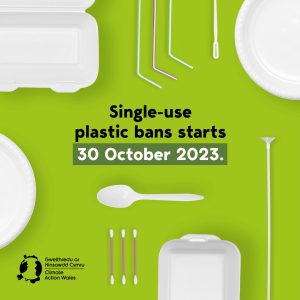
Climate Change Minister Julie James explained the Act forms part of the Welsh Government’s response to the climate and nature emergencies and ‘builds on momentum created by communities across Wales who have chosen to go plastic free, defy throwaway culture and tackle littering’
Public support for the ban has been positive with more than 87 per cent of people backing the move.
As of today, the following items are now banned from being sold across the country:
- Single-use plastic plates
- Single-use plastic cutlery
- Single-use plastic drinks stirrers
- Cups made of expanded or foamed extruded polystyrene
- Takeaway food containers made of expanded or foamed extruded polystyrene
- Single-use plastic balloon sticks
- Single-use plastic-stemmed cotton buds
- Single-use plastic drinking straws (exemptions for those who need them to eat and drink safely and independently)
Minister for Climate Change, Julie James said:
This is the first step in phasing out the need for unnecessary single-use plastic being used and sold in Wales.
We’re committed to eradicating single-use plastic and our next phase will see the banning of plastic single-use carrier bags, polystyrene lids for cups and food containers and products made of oxo-degradable plastic, which will come into force before the end of the Senedd term.
Many businesses across Wales have already adopted the change prior to the ban by switching to reusable products or swapping out their plastic for cardboard or paper alternatives where reusables aren’t suitable.
We’re also looking at plastic based wet wipes which can block drains, contribute to flooding and add microplastic fibres to our environment.
If we all take a ‘Team Wales’ approach and look to reuse, recycle and repair more, it’ll help create a greener future for generations to come.
More information can be found on our own "Net Zero Wales" Page or visiting Gov.Wales
New Look For Recycle Link Wales
Updated Website and Logo as Part of a New Look for Recycle Link Wales
Recycle Link Wales is delighted to introduce a refreshed and updated website along with a new branding logo.
While the look maybe different, the commitment and purpose of Recycle Link Wales remains the same: To be a resource for the recycling industry in Wales.

What's New?
In addition to some of the old website features linking you to industry news and events from Wales, this new website now includes additional features of an updated Wales directory and Knowledge Hub.
Directory
Our new directory allows you to either manually search or scroll across an interactive map to discover Welsh based organisations. This directory includes public sector services and resource services in Wales.
Take a look at Recycle Link Wales Directory here.
Knowledge Hub
Our knowledge hub page is designed to signpost users to industry support and information. Alongside this page, our dedicated ‘Net Zero Wales’ page provides links specific to Welsh Government waste news, policy and legislation while a FAQ page provides additional information useful to those working within the resource industry here in Wales.
Stay Updated & Connected
Stay connected with us by subscribing to our newsletter and following us on social media. Be the first to know about upcoming events, new initiatives and news from Wales.
X (Formallty Twitter) @RecycleWales
Recycle Link Wales continues to be run independently run site and welcome any input and suggestions to improve and continue to make it better still. Feel free to contact us to comment on anything that you feel need to be included on the site. ‘Contact Us’ Page.
We hope will benefit those working within the resource industry in Wales and those wanting to connect to it.
World’s First to Trial Digital Bottle Recycling
The First Minister for Wales visited Brecon today to see how a trial digital deposit recycling scheme is working.
Brecon is the first town in the world to test this particular type of digital deposit scheme.
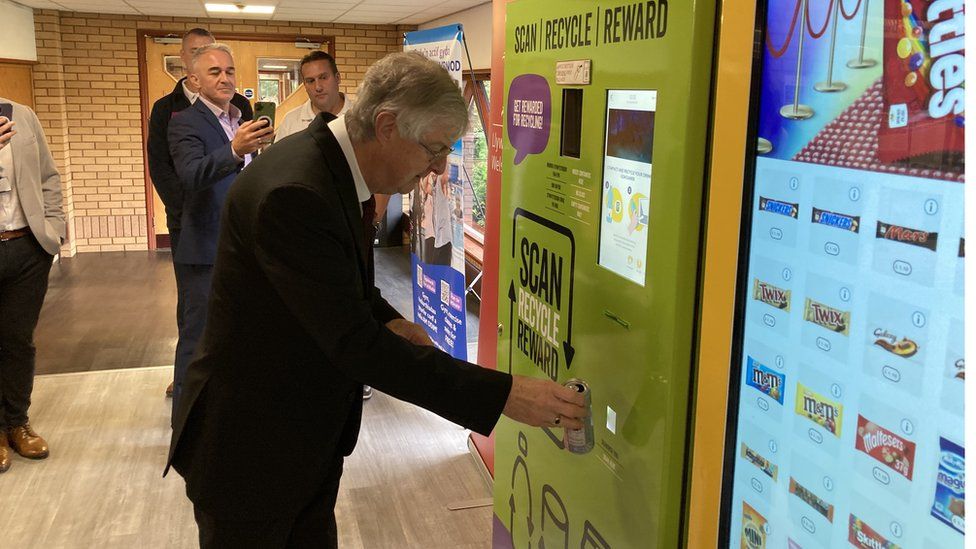
During the trial, people claim 10p for every specially-marked bottle they recycle by scanning it with an app.
Around 1,200 households in Brecon have registered to take part in the scheme. Cans or bottles can be recycled through normal waste collections at home, over the counter in shops or through special recycling machines located around the town.
The trial, which runs until 1 November, is exploring how digital technology can be used in a deposit return scheme for drink containers.
Every year UK consumers use an estimated 14 billion plastic drinks bottles and 9 billion drinks cans, many of which are littered or sent to landfill. International examples show deposit return schemes can boost drinks container recycling, with rates of more than 90% in Germany, Finland and Norway.
First Minister Mark Drakeford said:
“We’re committed to introducing a deposit return scheme in Wales and it’s important we explore the different ways a scheme could be delivered.
Wales is the third best country in the world for recycling but we need to go further if we are to reach net zero and tackle littering. The learning from this trial will help us better understand recycling patterns, which is an important part of reaching that target.
It’s been very interesting learning more about this scheme from people in Brecon – a great effort by the local community”.
Duncan Midwood, of Circularity Solutions Ltd, the project lead and head of the consortium leading the pilot, said:
“Wales is leading the way in supporting the development of Digital DRS which promises to transform the way packaging is collected for recycling across the World. The learnings gained from the trial in Brecon will help industry and legislators understand how Digital DRS could work within a UK DRS to increase levels of recycling further”.
Cllr Jackie Charlton, Powys County Council Cabinet Member for a Greener Powys said:
“It has been great to be involved with this project and working collaboratively with Welsh Government, many other organisations, industry representatives and the local business and community in Brecon. Powys already has an impressive recycling culture and it has been good to see how a deposit return scheme can be used in conjunction with an existing successful kerbside collection service”.
A £45 million investment will more than double Wales’ plastic reprocessing capacity and create over 100 new jobs at the former Toyoda Gosei factory in Swansea.
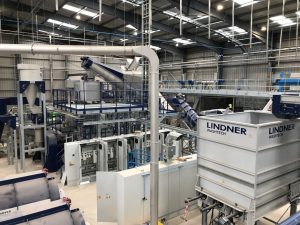
Jayplas, a market leader in plastic reprocessing, will develop an advanced facility capable of processing at least 100,000 tonnes of flexible and rigid plastics a year, boosting the circular economy in Wales.
Once fully operational, it will reduce the carbon footprint of Wales by around 150,000 tonnes per year, the equivalent of taking 120,000 cars off the road, making a significant contribution towards zero waste and net zero emissions by 2050.
The facility will develop over three phases:
- a mixed kerbside rigid plastics and film sorting plant
- a bottle wash and extrusion plant
- a flexible packaging wash and processing plant.
Minister for the Economy, Vaughan Gething said:
“I’m delighted to welcome Jayplas to Swansea for this significant development and vote of confidence in our workforce and net zero ambitions.
Increasing capacity to reprocess and recycle plastic here in Wales opens opportunities to create an innovative and sustainable industry. This project includes significant skilled and green job creation, supports our decarbonisation journey, increases our reprocessing and recycling capacity and supports a stronger, fairer and greener economy”.
Minister for Climate Change, Julie James said:
“I am very pleased to see this facility being developed in Wales. It aligns with our commitment to move to a zero waste, net zero carbon Wales and is well timed as we work to bring in the new Workplace Recycling Regulations in April next year, which will further improve the supply of high-quality plastic for recycling”.
Commercial Manager, Kerry O’Neill from Jayplas said:
“Jayplas are delighted to announce we are opening a Plastics Processing and Manufacturing plant in Swansea. We have worked closely with the Welsh Government to expand our operations into Wales. We will utilise the latest, state of the art technology to ensure we have market leading facilities producing the highest quality products and bring long term investment and sustainable employment to the area”.
Shigenori Matsuo, Managing Director Toyoda Gosei UK Ltd. (TGUK) said:
“I am delighted that TGUK had created a lasting legacy for the site in Swansea to provide Jayplas with a strong foundation for developing a state of the art facility, investment, growth and employment in the area”.
NRW Strategic Review of Charges 2023-24
Approval of Natural Resources Wales' (NRW’s) Strategic Review of Charges (SRoC) 2023-24
The Minister for Climate Change, Julie James MS, has today approved Natural Resources Wales' (NRW’s) proposed regulatory charges for 2023-2024, and for NRW to make the necessary arrangements to implement these charges from 1 July in the following areas:
- Industry regulation
- Site based waste
- Water quality
- Water resources
- Reservoir compliance
- Introduction of species licencing charges
NRW’s regulatory charges are designed to operate on a cost recovery basis to ensure it recovers eligible costs of its permitting and regulatory work, in a fair and appropriate manner.
Informed by NRW’s Strategic Review of Charges (SRoC) Programme, NRW’s intention is to ensure that the costs of, delivering their regulatory approach and the outcomes needed for the Welsh environment and green recovery, are recovered from those they regulate and to avoid subsiding these costs through their Grant in Aid (GiA) or other charge payers.
NRW’s proposed charges have been developed through a process of extensive background research and ongoing discussions with Welsh Government, stakeholders, and other UK regulators. NRW’s consulted on their proposed charges for 2023-2024 in October 2022.
Welsh Government officials have now conducted appropriate final check and have sought the necessary assurances to ensure NRW’s SRoC programme is robust and provides an accurate basis to support and underpin NRW’s proposed charges for 2023-24.

